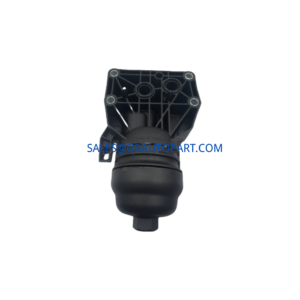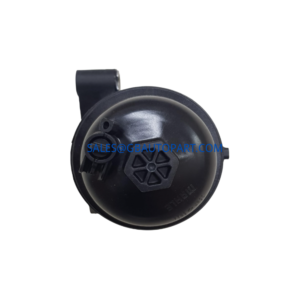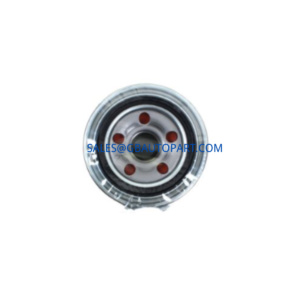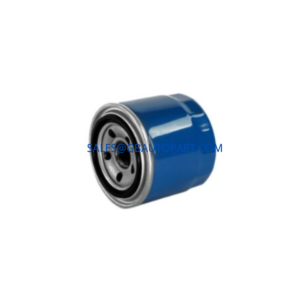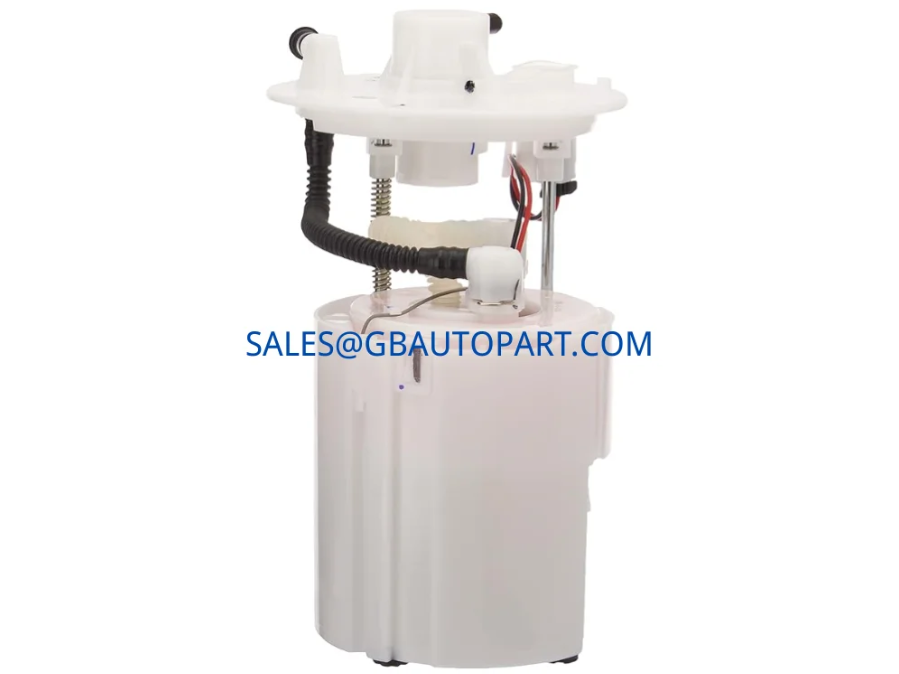
Introduction: The Unseen Hero of Engine Performance
In the complex ecosystem of a modern vehicle, countless components work in unison to deliver the power and reliability drivers expect. Among these, the fuel filter, specifically the 31120-H7000 part used in various Hyundai and Kia models, plays an absolutely critical and often overlooked role. This component isn’t merely a piece of metal and paper; it is the primary defense mechanism protecting your engine’s delicate fuel injection system from contaminants. For car owners, technicians, and parts enthusiasts, understanding the function, features, and necessity of this particular filter is key to maintaining peak vehicle health and longevity. Our focus here is to delve deeply into the world of the 31120-H7000 fuel filter, providing actionable, expert-level knowledge for anyone concerned with automotive filter performance.
Decoding the Part: What is the 31120-H7000 Fuel Filter?

The 31120-H7000 is an OEM (Original Equipment Manufacturer) or equivalent aftermarket fuel filter designed and specified for a range of vehicles manufactured by the Hyundai-Kia Automotive Group. Primarily, its function involves ensuring that the fuel delivered from the tank to the engine’s injection system is clean, free of particulate matter, rust, dirt, and other impurities. Given the sophisticated nature of modern direct injection systems, which operate under extremely high pressure and with tight tolerances, the presence of even microscopic debris can lead to severe damage, reduced performance, and costly repairs. Therefore, the physical specifications and filtration capability of the 31120-H7000 are engineered to meet the stringent requirements of these specific engines.
This particular filter is often an in-tank unit, meaning it resides within the fuel tank assembly alongside or integrated with the fuel pump module. This positioning offers several advantages, including noise reduction and enhanced protection against physical damage. However, it also means replacement can be a more involved process than with older, in-line filters. The design, including its micron rating—the size of the smallest particle it can trap—is precisely calibrated to balance optimal fuel flow with superior contamination removal.
Critical Features and Engineering Excellence of 31120-H7000
The engineering behind the 31120-H7000 highlights why choosing the correct, high-quality replacement is paramount. Its effectiveness stems from several key features:
1. Advanced Filtration Media
The core of any filter is its media. The 31120-H7000 typically utilizes a multi-layer synthetic or cellulose-based media that provides both depth and surface filtration. This dual-action approach ensures that larger particles are caught on the surface while finer contaminants are trapped within the material’s depth. This high-efficiency media is crucial, especially in regions where fuel quality can be inconsistent, as it maintains its structural integrity even under constant fuel exposure and pressure.
2. Pressure and Flow Integrity
Modern engines demand a continuous, stable supply of fuel at a specific pressure. The housing and internal structure of the 31120-H7000 are built to withstand the high operating pressures of the fuel system without warping or failing. Crucially, the filter is designed to offer minimal resistance to flow while still achieving maximum filtration. A poorly designed filter can restrict flow, leading to fuel starvation under acceleration and potential engine misfires. The precise engineering of this part ensures the engine receives the necessary fuel volume at all times.
3. Material Compatibility and Durability
The filter and all its seals must be fully compatible with various fuel types, including gasoline blends that may contain ethanol (E10, E15). The components of the 31120-H7000 are constructed from robust, fuel-resistant polymers and metals that prevent premature degradation, cracking, or leaching of material into the fuel stream, which could otherwise damage the injectors. This durability translates directly into a longer service life and reliable performance between scheduled maintenance intervals.
The Real-World Impact: Why Filter Maintenance is Non-Negotiable
Ignoring the fuel filter’s service life is a mistake that ultimately costs drivers far more than the price of a replacement 31120-H7000. The accumulation of debris over time progressively clogs the media, leading to a cascade of negative effects on the vehicle:
- Reduced Engine Performance: As the filter clogs, the flow of fuel is restricted, causing the fuel pump to work harder. This restriction can manifest as hesitation, rough idling, or a noticeable drop in power, particularly during acceleration or under load. The engine may struggle to maintain speed, effectively choking on its own contaminants.
- Increased Wear on Fuel Pump: The fuel pump is forced to exert greater effort and pressure to push fuel through the restricted 31120-H7000. This sustained overwork generates excessive heat and accelerates wear on the pump motor, inevitably leading to premature failure of a much more expensive component.
- Potential Damage to Fuel Injectors: The ultimate purpose of the filter is to protect the injectors. If the filter media fails or is completely saturated, contaminants can pass through and erode or block the tiny orifices of the fuel injectors. Clogged injectors lead to poor spray patterns, incomplete combustion, increased emissions, and dramatically reduced fuel economy.
- Starting Issues: In extreme cases of a severely blocked filter, the engine may become difficult to start or may fail to start altogether because insufficient fuel pressure can be built up in the system.
Consequently, adhering to the manufacturer’s recommended service intervals for the 31120-H7000 is an investment in protecting the entire fuel system, ensuring your Hyundai or Kia maintains its factory-specified performance and efficiency.
The User’s Perspective: When and How to Handle the 31120-H7000
For the conscientious vehicle owner or dedicated service technician, knowing when to replace the 31120-H7000 is as important as knowing why.
Recommended Replacement Schedule
The service interval for this filter varies by specific vehicle model and operating conditions, but a general guideline is often between 30,000 to 60,000 miles (approximately 48,000 to 96,000 kilometers). Always consult the official maintenance schedule provided in your vehicle’s owner’s manual, as this is the definitive source. Furthermore, if you notice any of the warning signs—such as difficulty starting, rough idle, or a sudden loss of power—an immediate inspection of the fuel system, including the 31120-H7000, is highly advisable.
Selecting the Right Replacement
When purchasing a replacement, whether you opt for an OEM part or an equivalent aftermarket version, verification of the part number is essential. You must ensure the replacement filter matches the exact specifications and fitment of the original 31120-H7000. Subpar or incorrect filters may not provide the necessary micron rating, potentially compromising the engine’s protection, or they may simply not fit correctly within the fuel tank assembly. Sourcing this crucial component from a reputable supplier, such as gbautopart, is the best way to guarantee quality and precise fitment, ultimately restoring the vehicle’s fuel system to optimal health.
Conclusion: Prioritizing Quality for Longevity
The 31120-H7000 fuel filter embodies the concept that small components can have massive implications for vehicle performance. It stands as a silent sentinel, diligently guarding the heart of your Hyundai or Kia’s fuel system against the myriad contaminants found in everyday fuel. Recognizing its vital function, adhering to proper maintenance schedules, and selecting a high-quality replacement are fundamental responsibilities for any vehicle owner. By prioritizing the health of your filtration system, you are not merely changing a part; you are ensuring the enduring efficiency, power, and long-term reliability of your vehicle.
Frequently Asked Questions (FAQ)
Q1: What happens if I drive too long with a dirty 31120-H7000 fuel filter?
A: Driving with a clogged 31120-H7000 filter puts excessive strain on your fuel pump, potentially causing it to fail prematurely. It also restricts fuel flow, which leads to poor engine performance, hesitation during acceleration, reduced fuel economy, and may eventually cause damage to the expensive fuel injectors.
Q2: Is the 31120-H7000 difficult to replace since it’s an in-tank filter?
A: Yes, generally, in-tank filters like the 31120-H7000 are more complex to replace than older in-line filters. The process often requires accessing the fuel tank from under the rear seat or through a trunk access panel, making professional installation highly recommended due to the safety risks associated with working on the fuel system.
Q3: How do I know if I need to replace my 31120-H7000 fuel filter?
A: While adhering to the manufacturer’s schedule is best, common signs that the 31120-H7000 needs replacement include the engine sputtering at high speeds, difficulty starting (especially in colder weather), the engine stalling, or a noticeable decrease in gas mileage. These symptoms indicate fuel starvation due to a blockage.



